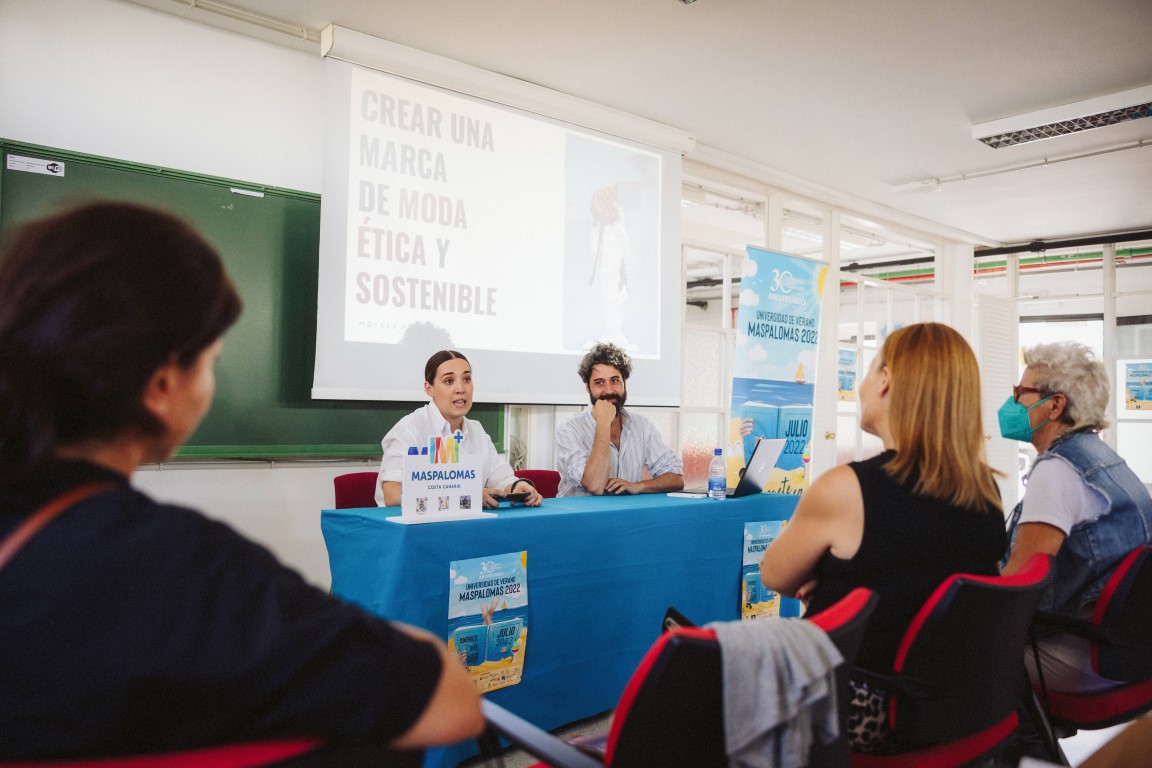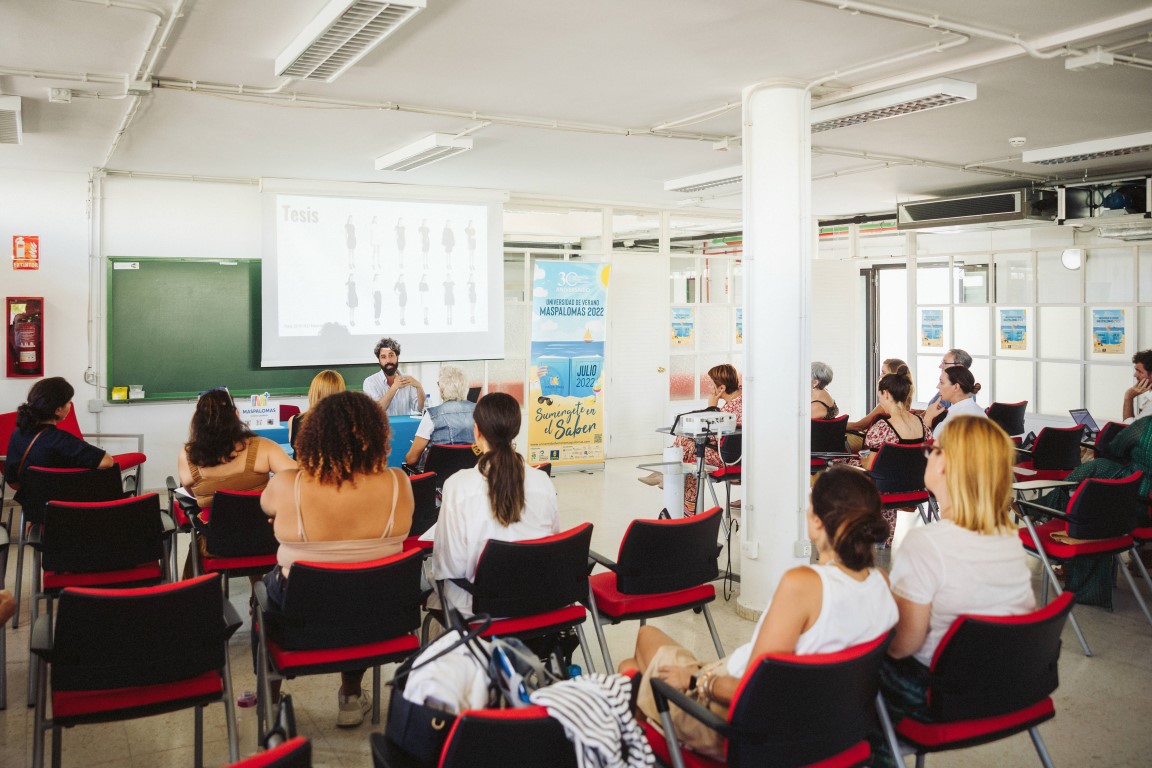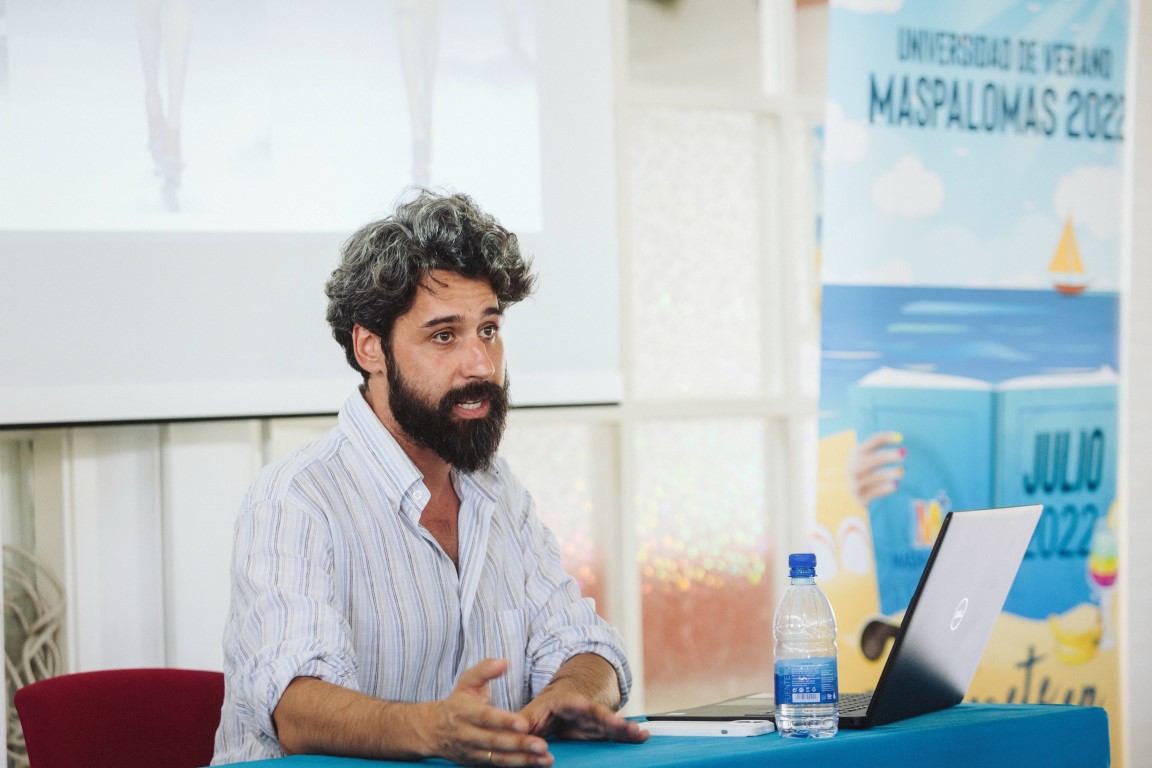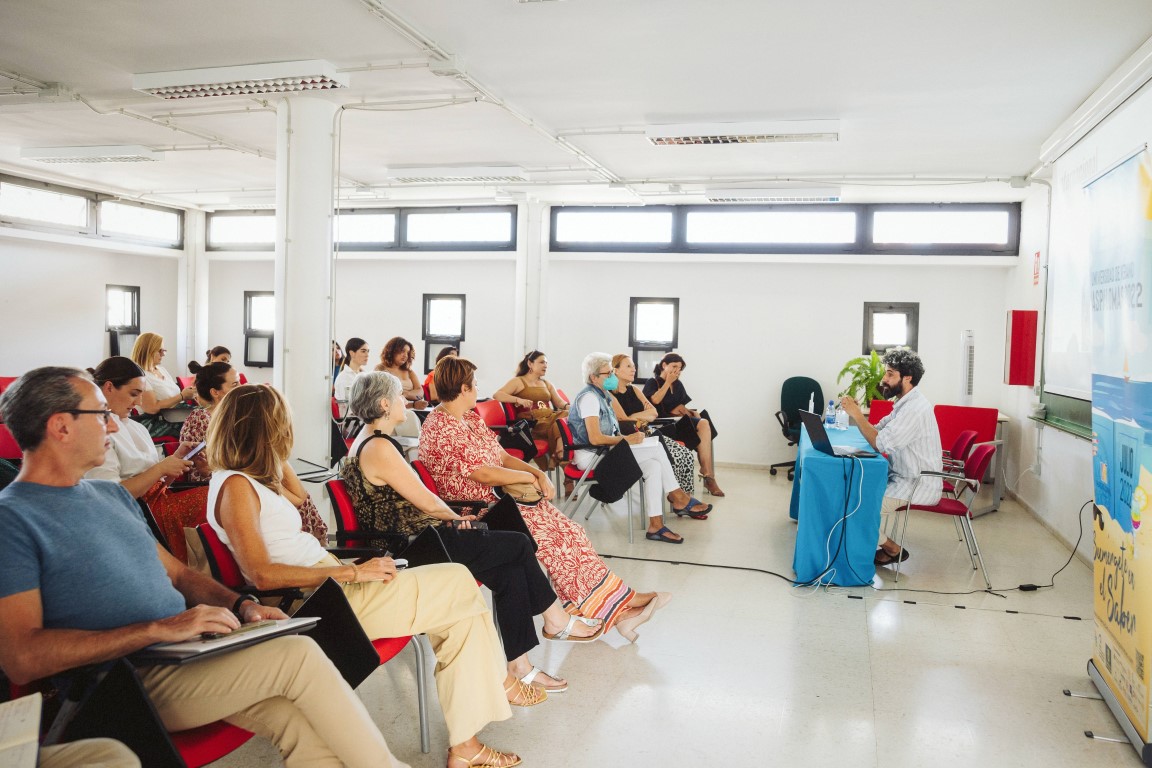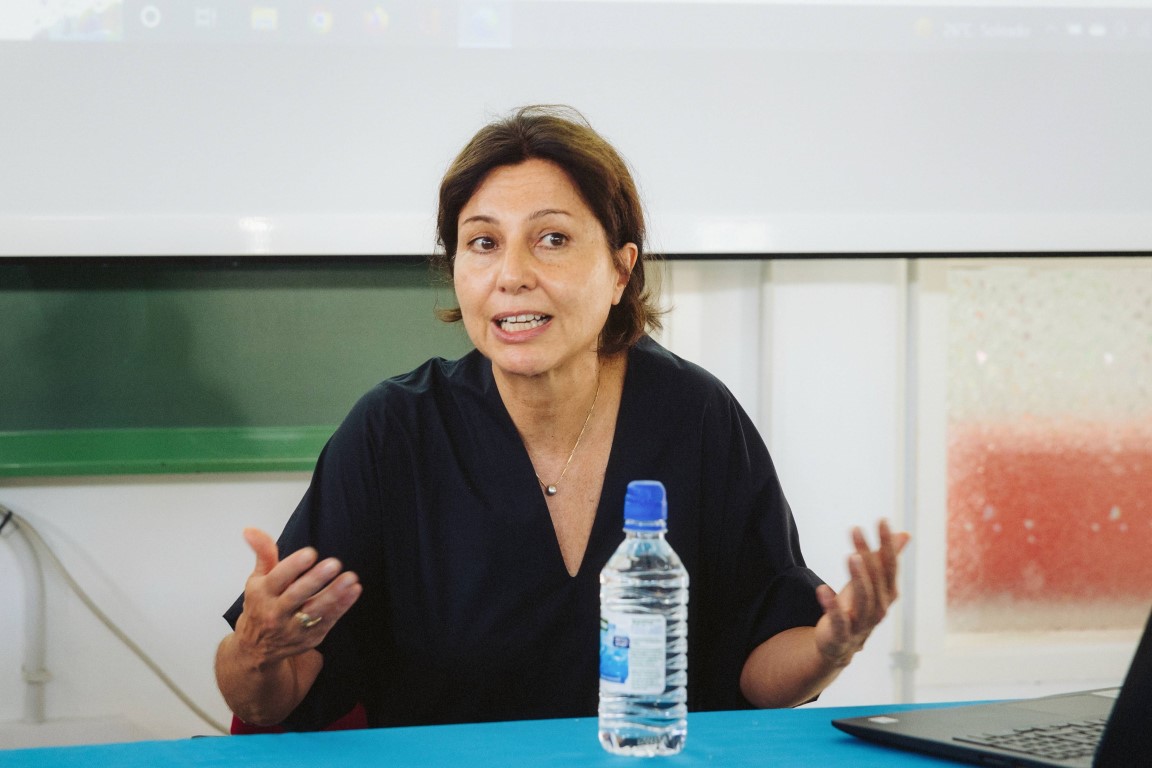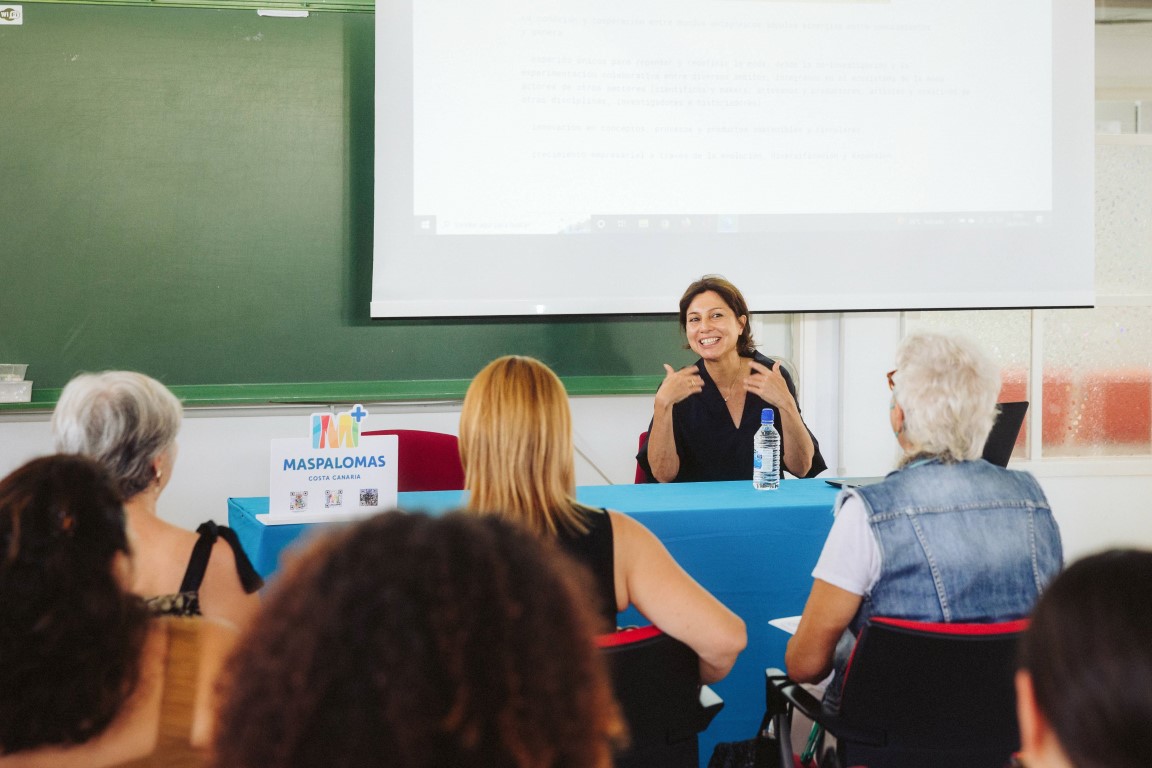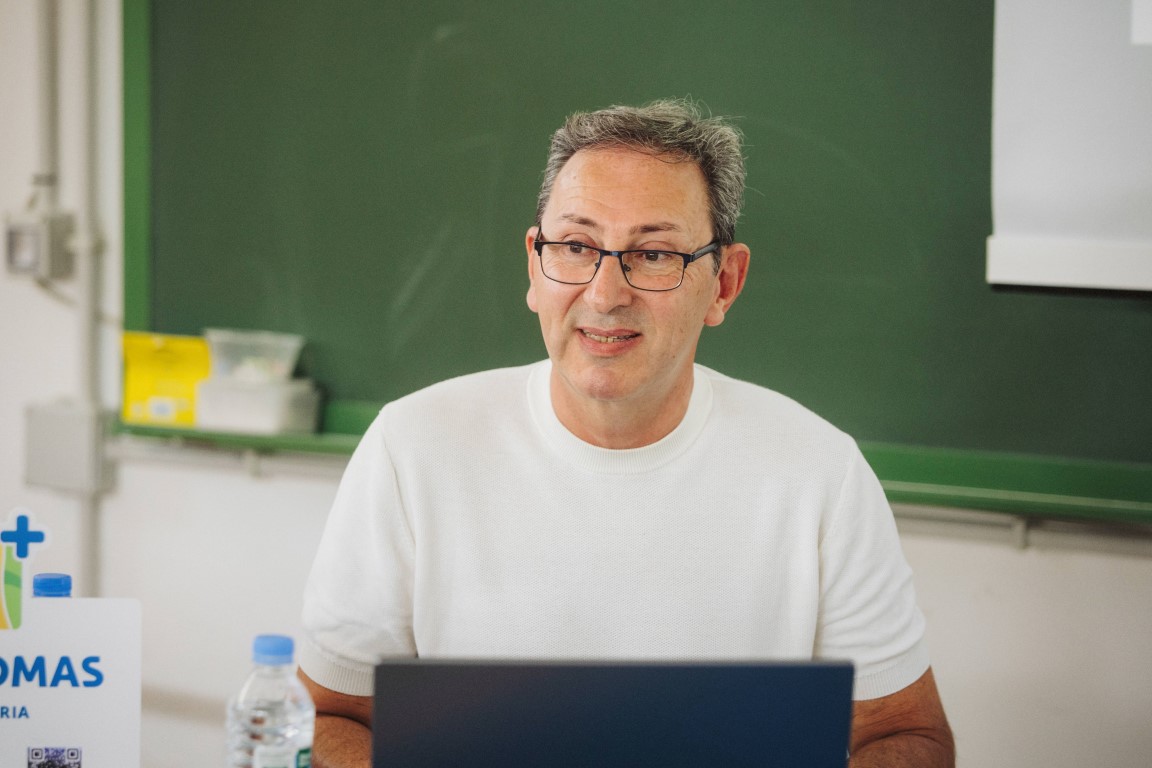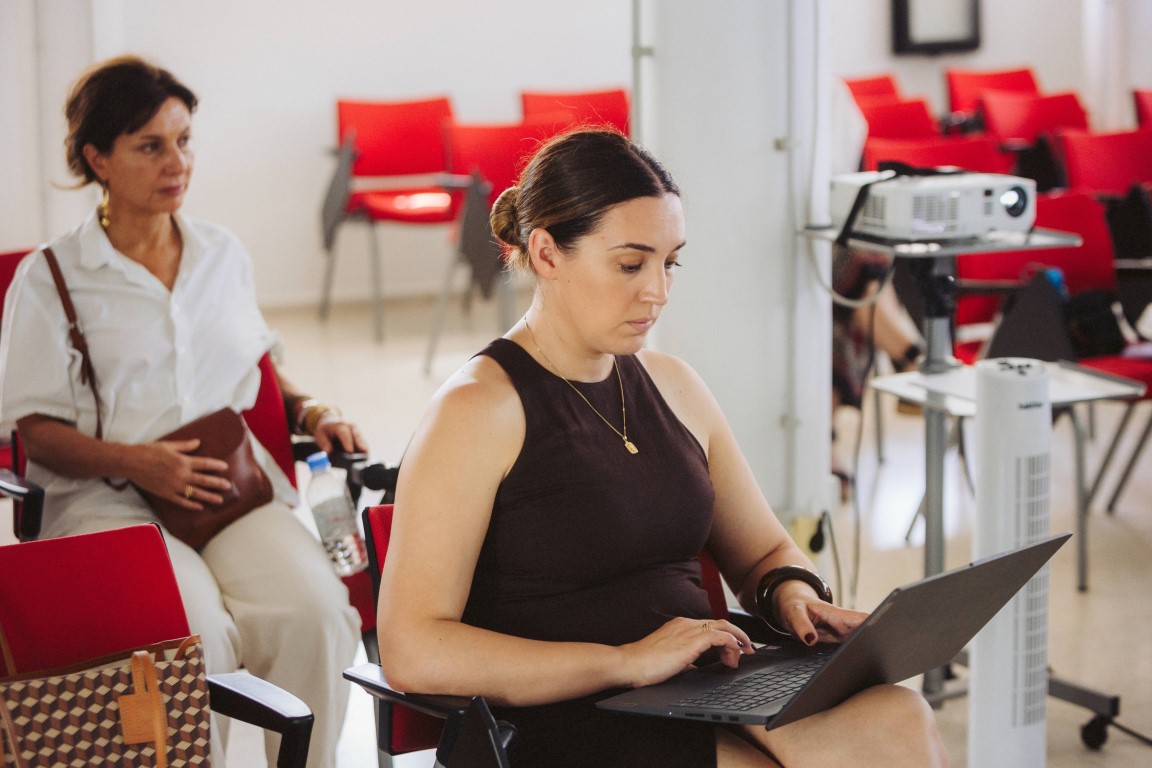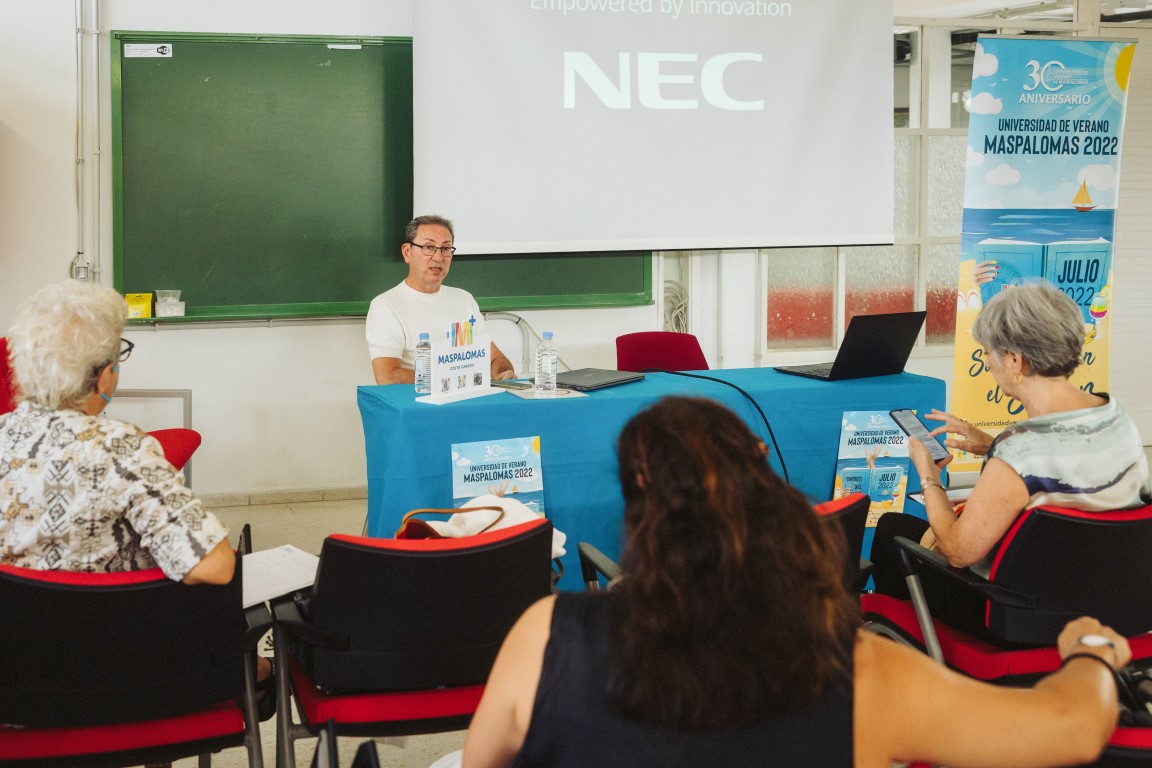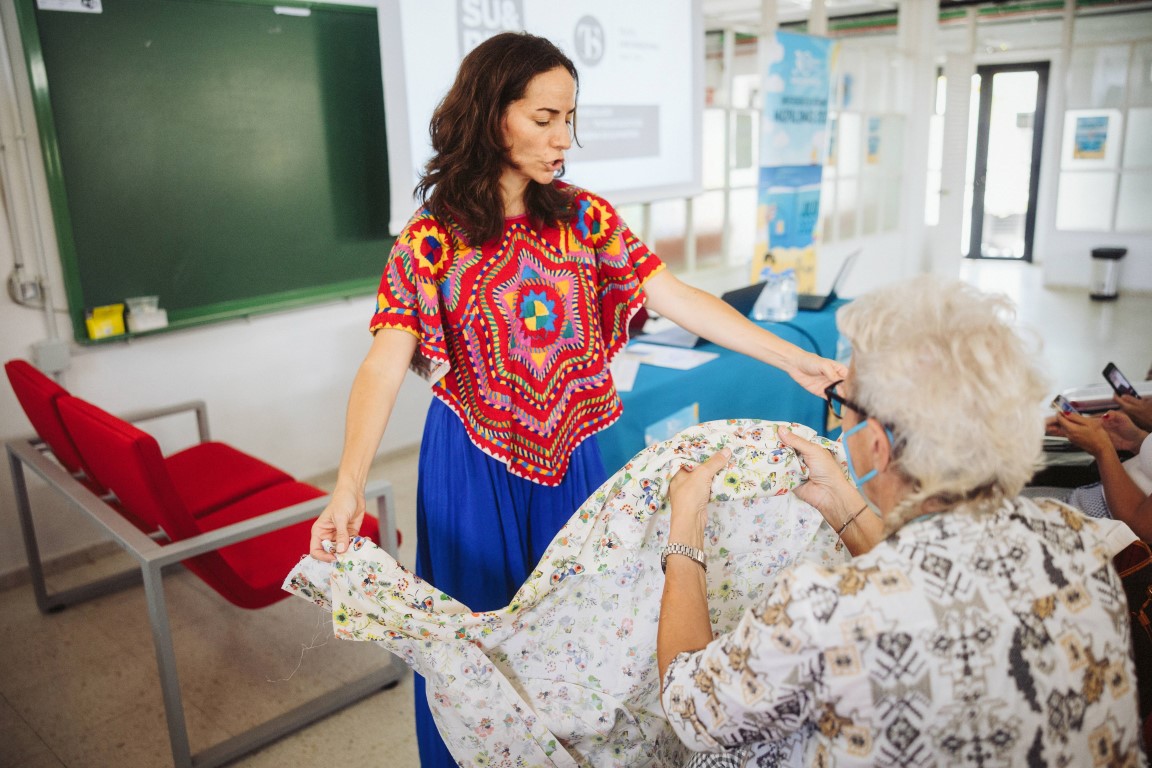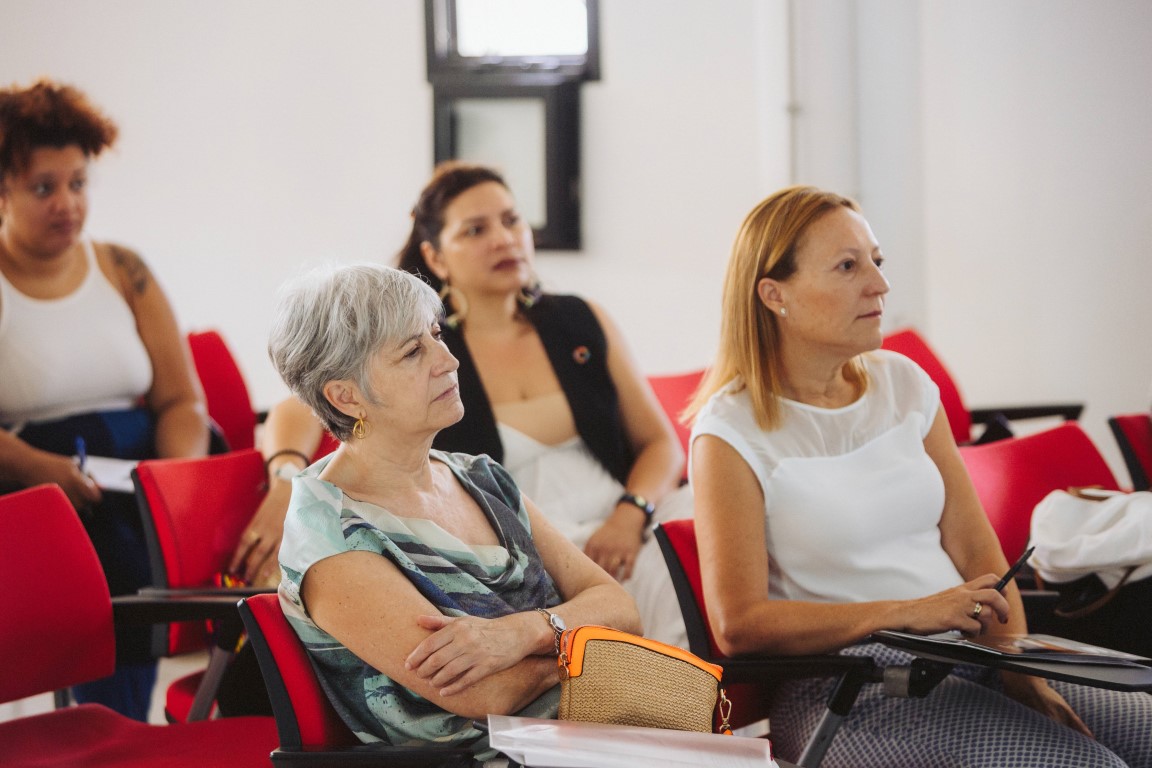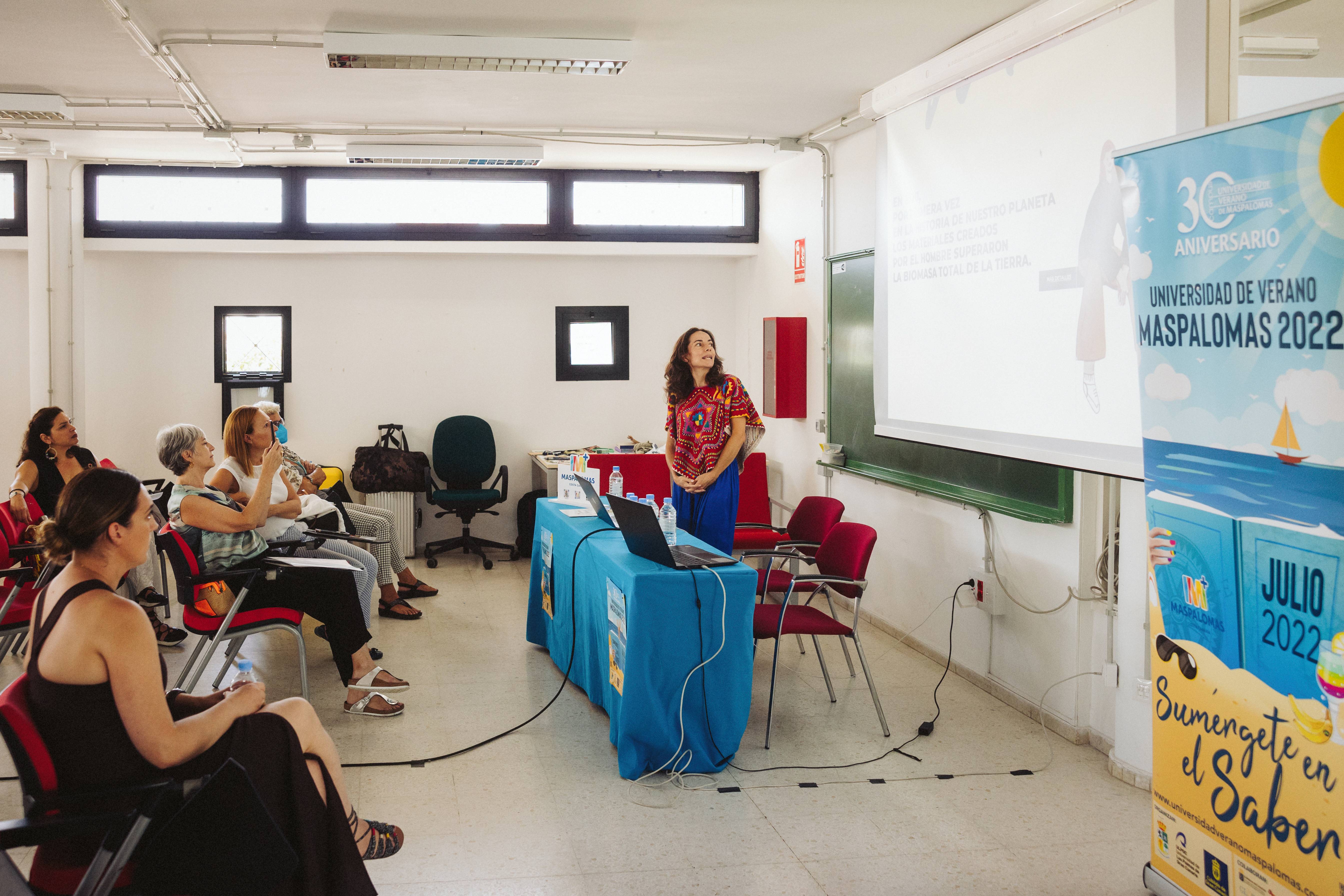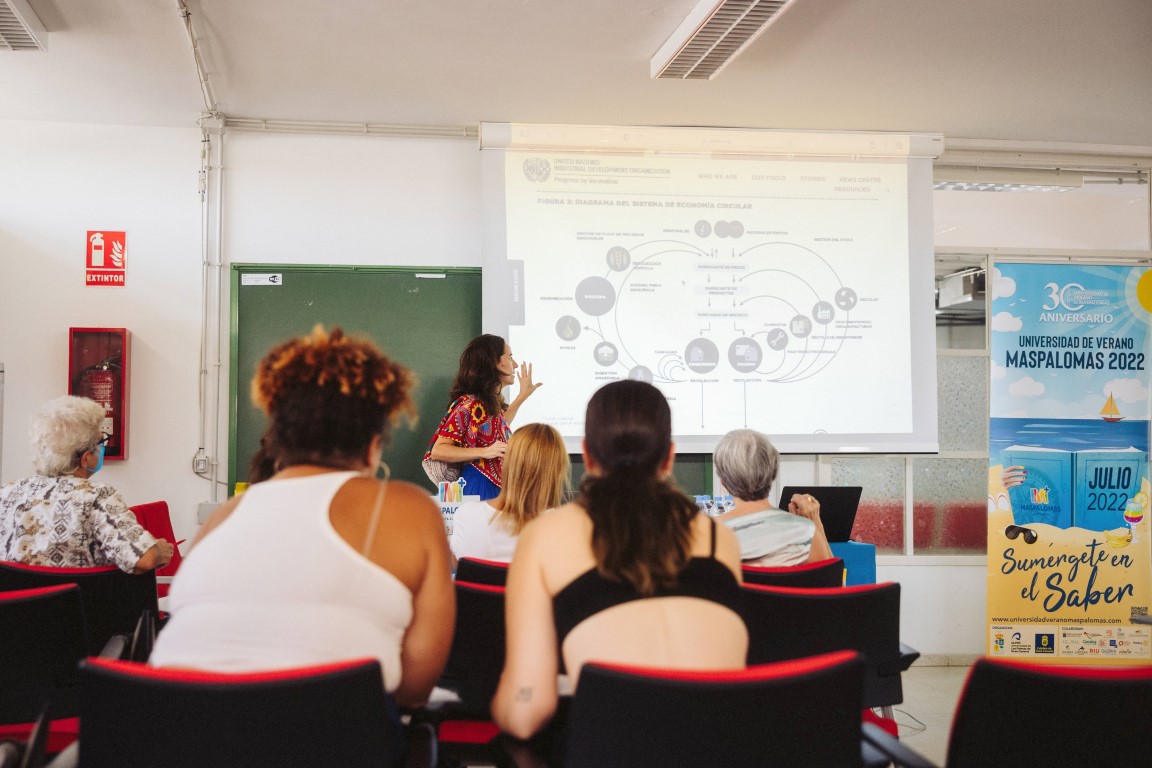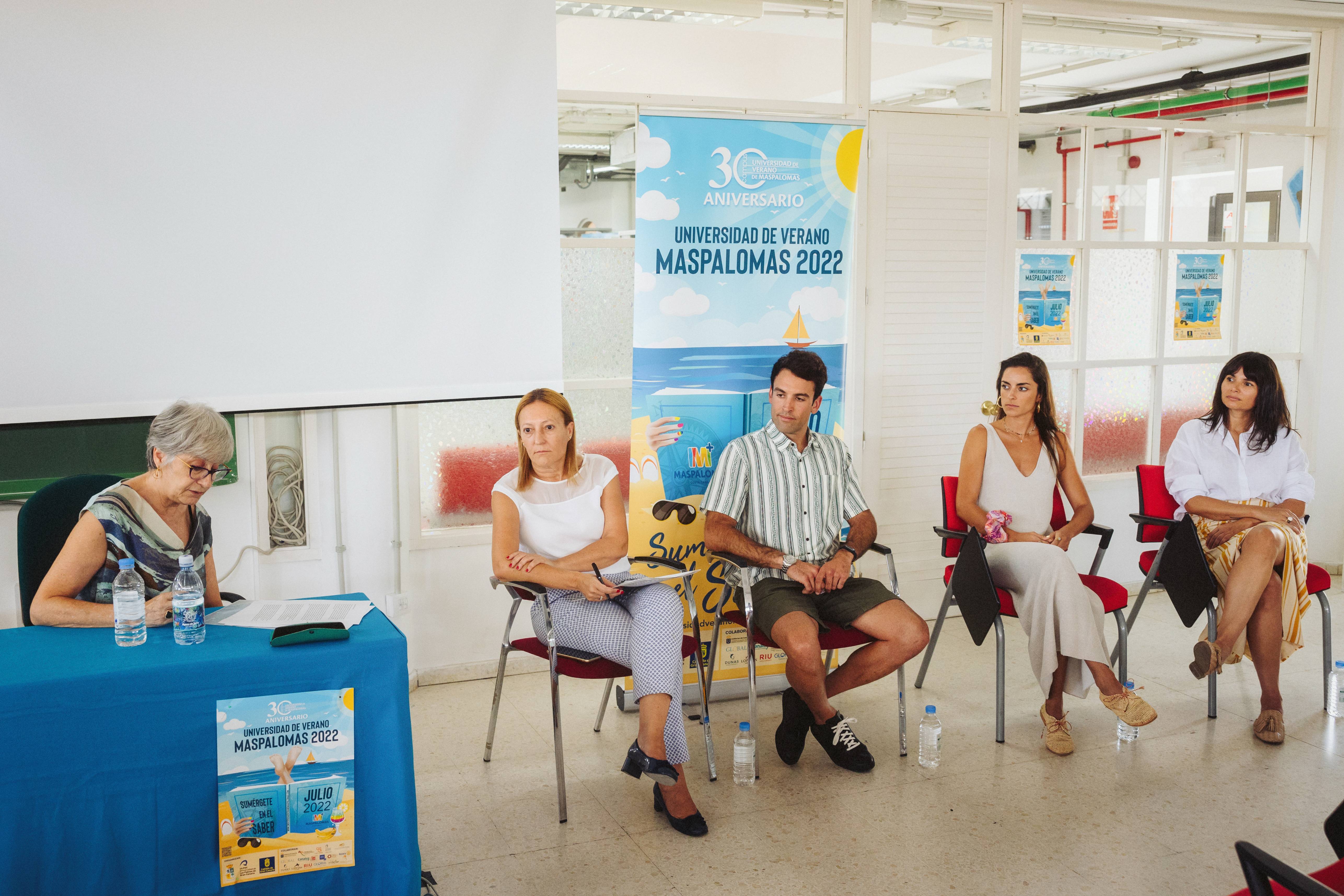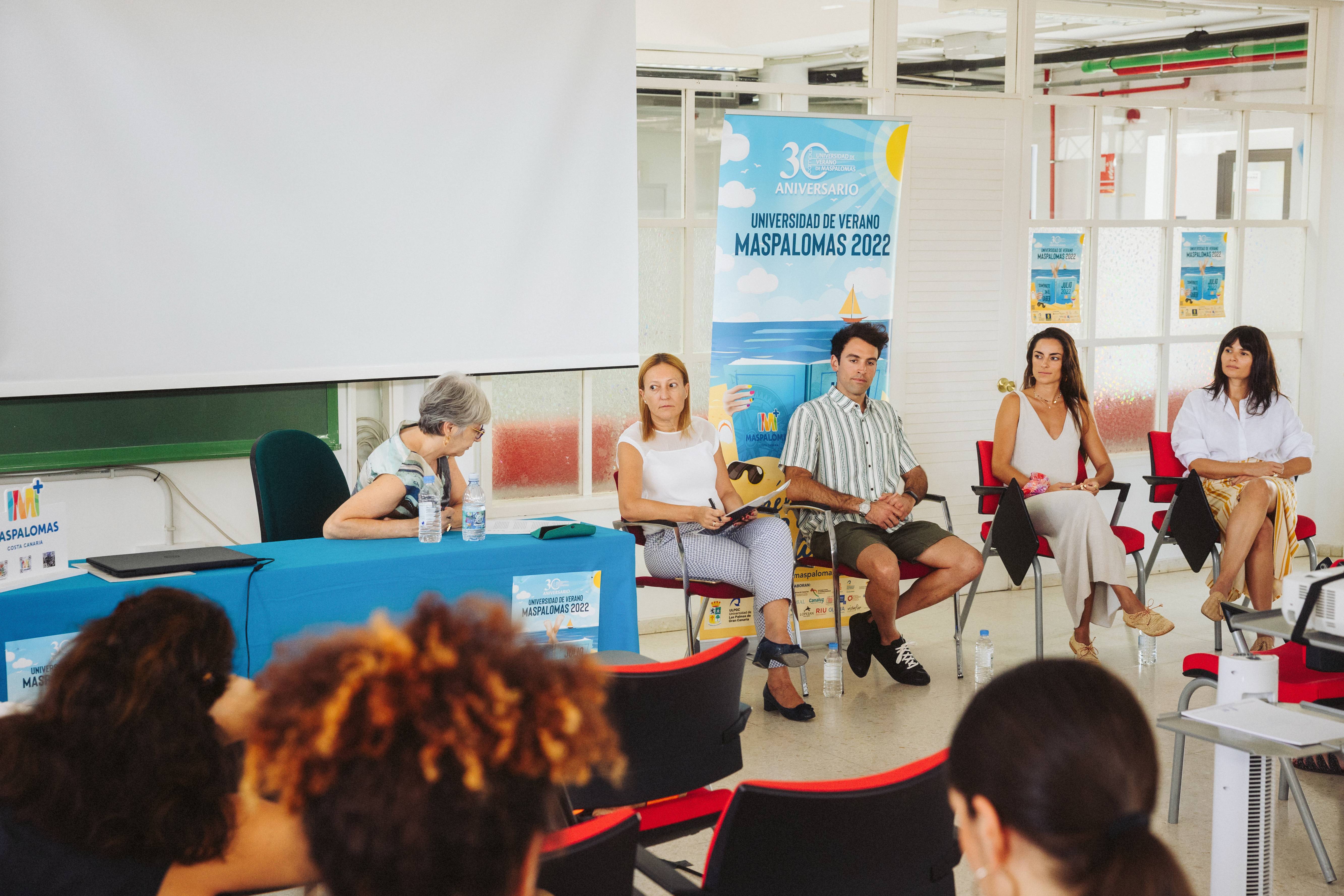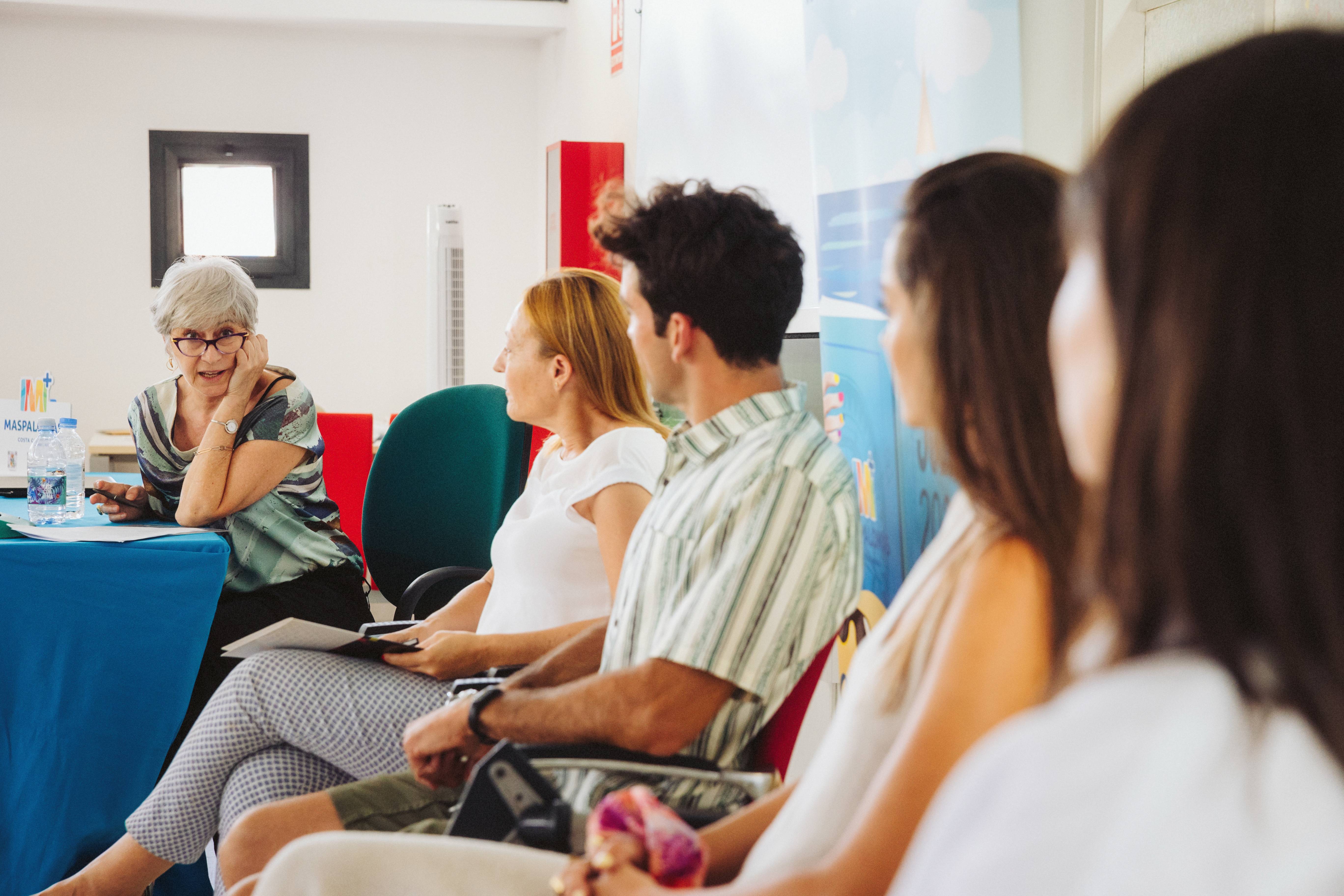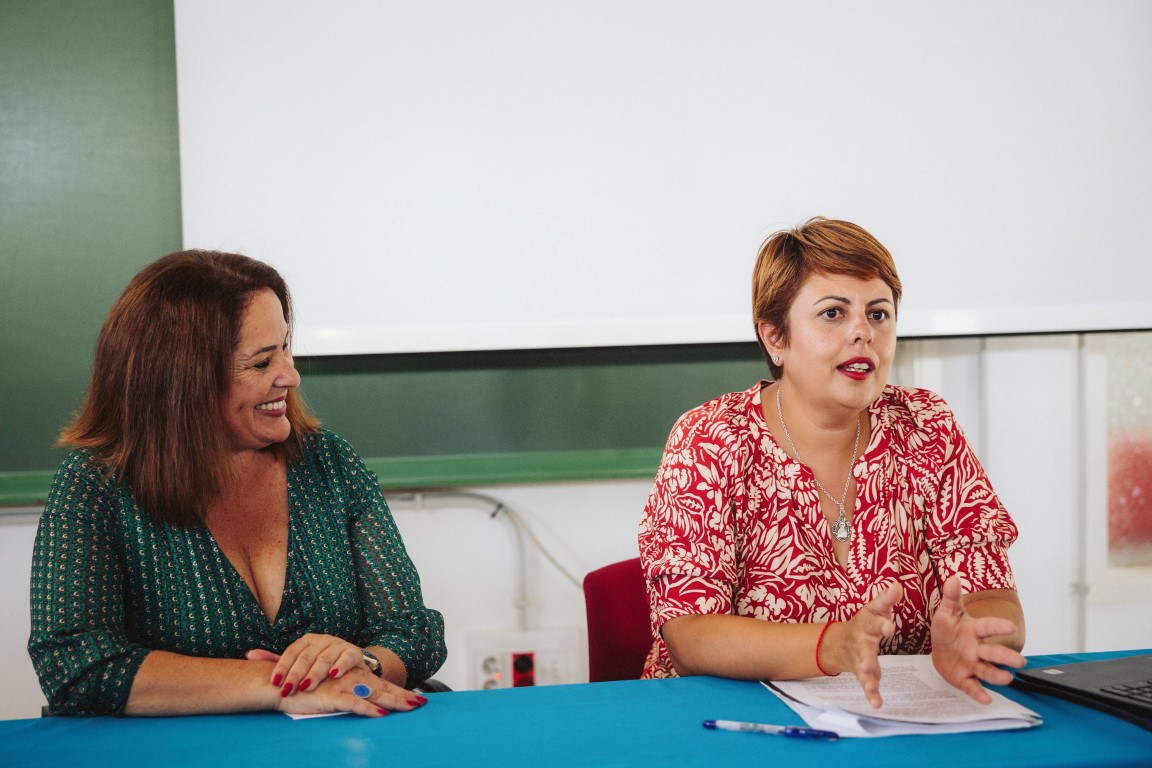
Upcycling, synergies, km 0 and trained customers, key concepts for sustainable fashion.
2022-07-20
The Summer University of Maspalomas hosted a course given by experts organised by the Asociación de Creadores de Moda España and the Cabildo de Gran Canaria.
"This training is another example of the responsibility acquired by Gran Canaria Moda Cálida to implement sustainability measures in each and every one of the actions undertaken by the programme. Sustainability understood as a commitment to the environment, but also to people". This was the reflection of Araceli Díaz Santana, director of the Gran Canaria Moda Cálida programme, at the round table that brought to a close the Conference on Sustainability, Entrepreneurship and Circular Economy held as part of the Maspalomas Summer University. The course, which was attended by top-level experts, was organised by the Asociación Creadores de Moda de España and the Department of Industry, Trade and Crafts of the Cabildo de Gran Canaria.
For her part, the Canarian designer Aurelia Gil shared with the attendees some of the details of her next collection, which can be seen at Mercedes-Benz Fashion Week Madrid next September. A work in which she highlights her firm commitment to the recovery of the crafts of Gran Canaria and km0 production.
In this sense, it was clear that reducing the carbon footprint is key in the strategy of fashion companies. This was also highlighted by Jorge Toledo who, from his firm Chela Cló, is implementing different initiatives to facilitate online shopping and generate as few product returns as possible, thus reducing CO2 emissions. Her firm is one of the most innovative in the Gran Canaria Moda Cálida programme in terms of digitalisation.
An area that is also key to Elena Morales' business development. With her swimwear brand, she is expanding more and more among customers on the peninsula, distinguishing herself by her enormous involvement in the research of new materials and her commitment to a made-to-measure model in swimwear that avoids generating stock. The young designer goes further and looks to the future of her brand with projects on waste management of her own garments to create new ones. A key opportunity to take the step towards circularity.
On the other hand, Moisés Nieto was in charge of opening the programme of presentations with a talk about his career. Upcycling and recycled materials have become a hallmark of his work, as well as his commitment to the recovery of crafts, which has led him to create Hacería. A search engine for craftswomen and craftsmen from all over Spain, with which he won the Madrid Capital of Fashion award. "The co-design projects in collaboration with different craftswomen have marked my latest collection, for which I have worked hand in hand with them, creating the pieces in tandem, listening to everything they wanted to contribute and learning from their experience", she declared.
The collaboration of creators, artisans and technologists from different fields has become one of the keys to generating sustainable and circular fashion initiatives. During her presentation, Isabel Berz appealed to the search for synergies with different sectors in order to generate innovation projects in fashion. "Creativity is the limit", declared the designer and researcher. Berz is also the founder of the Las Manuelas project, an initiative that links creative minds from all over the world with women in Peru.
Albert Guerrero, Director of Quality and Sustainability at Lola Casademunt, presented revealing data on the damage that industry and relocation are causing to the planet and the duty of fashion companies to adapt their processes to be more respectful of the environment. "Fifteen container ships pollute as much as half of the world's mobile parking. So increasing the commitment to zero-kilometre production should be a key part of any company's strategy", he reflected.
Sustainable fashion is also about consumer responsibility
For María Giraldo, the key to the transformation of the sector lies with the consumer. "One of the essential pieces to accelerate change in the industry, in addition to aid and strong legislation, is to educate. A well-informed customer who is also willing to try new forms of consumption would be the best gift for the fashion industry", he said.
For her part, Pepa Bueno emphasised that in this conference we have been able to see how sustainability and circularity have become an essential concept in any fashion company's strategic plan. "This strategy should not only include respect for the environment. Responsible consumption, local production, creativity, innovation and preservation of craftsmanship are other concepts to be taken into account".
Gallery
6387

